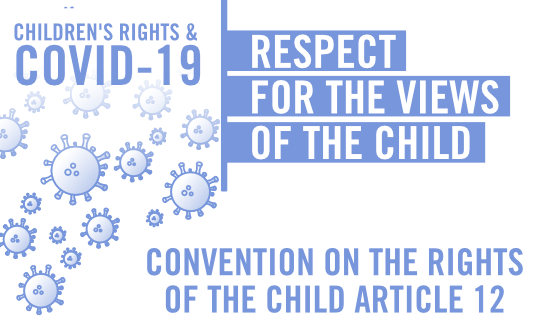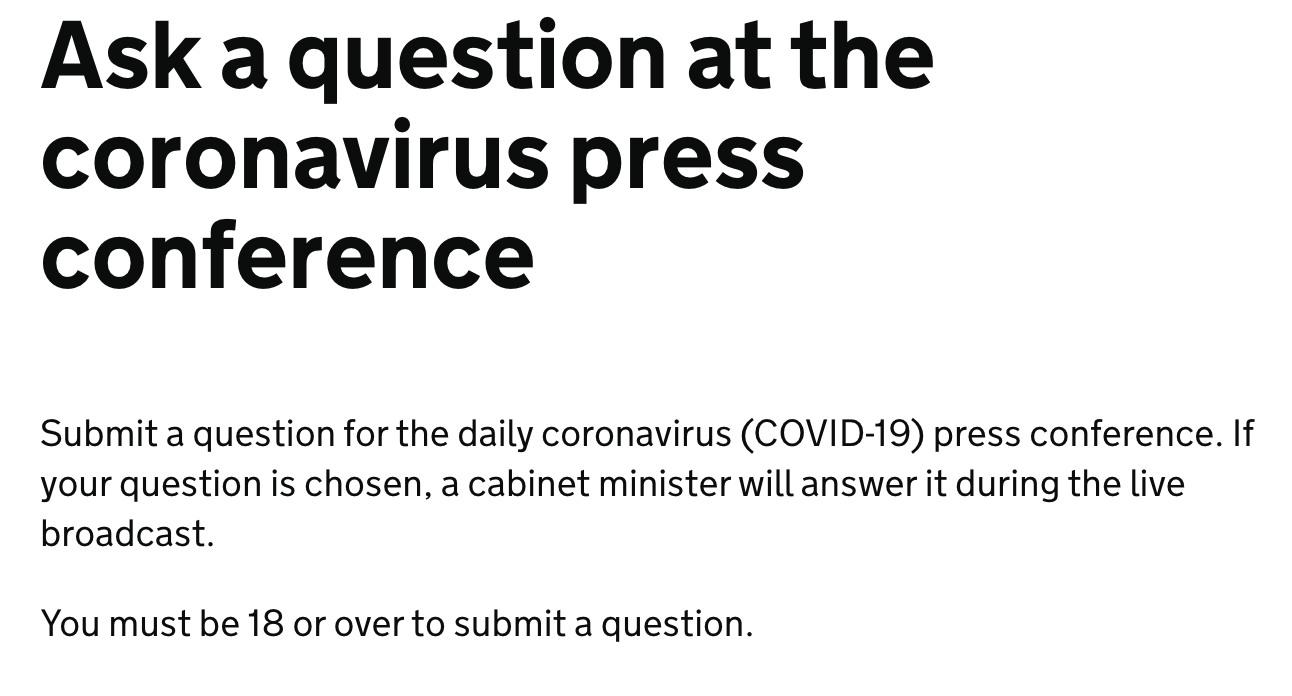
Let children be heard: a failure to listen to children during the pandemic is a children’s rights issue.

By Holly Shorey, Vice Chair, Amnesty Children's Human Rights Network
How is the COVID-19 pandemic affecting children’s rights?
The current COVID-19 pandemic is affecting all of us, and all of us in different ways. Each generation is dealing with different strains, difficulties, and anxieties at this tense time. Although evidence suggests that children tend not to be as affected by the disease itself, this doesn’t mean that they are having an easier time right now.
A survey by the University of Oxford has been investigating the effects of the pandemic on children’s mental health. They found that almost one fifth of primary school age children are scared to leave their homes, and the same amount are anxious about lack of household income, or food scarcity (Fifth of primary children afraid to leave house over Covid-19, survey finds).
The child rights implications to the current crisis are endless. Another harrowing example is that calls to the NSPCC about potential child abuse have risen by 20% since the lockdown started (https://www.bbc.co.uk/news/uk-wales-52473453).
Children on free school meals have also been affected. The scheme to keep children fed without being at school has not been delivered problem-free. Sadly, schools across the country have had to resort to using their own budgets or to already stretched food parcel charities to provide for the children in their care (Coronavirus: Families still waiting for free school meal vouchers).
These issues are only scratching the surface. Children’s rights are massively at risk at this time. It’s not all rainbows for children right now.
Are children being listened to?
When your rights are affected, we should all be able to speak out and be listened to. As we have seen children are being affected in such a multitude of ways, but despite this currently they’re not being heard. The UK Government announced last week that the public would get the chance to ask questions at the daily COVID-19 press conference (Public to get question at daily UK coronavirus press conference). The people being able to challenge and express their concerns to the Government is a great thing. However, children and young people (under 18s) are not allowed to submit questions. Meaning that, children and young people can’t challenge decision makers, or express their concerns.

Children’s right to be heard
Under article 12 of the UN Convention on the Rights of the Child (UNCRC), children have the right to be heard and listened to on all issues affecting them. Does the COVID-19 pandemic not affect children then? We have seen above that this is certainly not the case. Under their obligations to the UNCRC, decision makers should be actively listening to children not ignoring them.
Other efforts made internationally
Across the world, governments have been finding different ways to listen to and reassure children at this time. One way this is being done is by holding Q&A sessions just for children. For example, the Norwegian Prime Minister held a Q&A allowing children to express their worries, and ask any questions that they had (Coronavirus: Kids in Norway ask prime minister their questions). The same was done by New Zealand’s Prime Minister but she also made sure to reassure children that the Easter Bunny and the Tooth Fairy are considered key workers! By listening to and reassuring children, children understand what’s going on more, why they’re feeling or experiencing what they are, and why we’re all taking the steps we are to fight this pandemic.
Resources
I hope that the UK Government starts to listen to children, and take their obligations under the UNCRC seriously. This really matters.
Despite the UK Government’s decision, there are still resources available for children and young people right now. For example, the Children’s Commissioner for England has published a ‘Children's guide to coronavirus’, and the Children’s Commissioner for Scotland has an online Q&A page for children to ask about how COVID-19 affects their rights (Your coronavirus questions).
Our blogs are written by Amnesty International staff, volunteers and other interested individuals, to encourage debate around human rights issues. They do not necessarily represent the views of Amnesty International.
0 comments